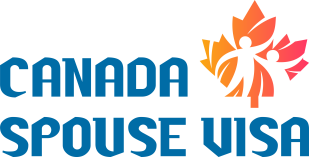Some couples applying for spousal or common-law partner sponsorship want to first apply for a Temporary Resident Visa (TRV) and then come to Canada to apply for inland sponsorship. The Government of Canada now gives you an option to apply for Spouse Immigration and Spouse Visitor Visa. It is now OK to apply for permanent residence, even though you currently have a status of a temporary resident. That means, applying for temporary residence, of any kind, does not stop you from applying for permanent residence.
The Immigration, Refugees and Citizenship Canada (IRCC) defined described ‘dual intent’ as below:
“An intention by a foreign national to become a permanent resident does not preclude them from becoming a temporary resident if the officer is satisfied that they will leave Canada by the end of the period authorized for their stay.”
Even so, some applicants were refused because they were incapable of proving that they would leave the country, once their documents duly expire.
IRCC, on October 30, updated their program delivery instructions for officers, explaining thereof, considerations to take when reviewing spousal sponsorship applications. Particularly, those who have applied for a TRV. Immigration officers are instructed to consider the individual circumstances of foreigners who are being sponsored for permanent residence as a spouse or common-law partner.
The following are the factors that the immigration officers are instructed to consider:
- whether the sponsorship application has been approved;
- whether the application for permanent residence has received stage one approval;
- to what extend the applicant has retained ties in their home country; and
- if their application is refused, what is the applicant’s plan?
Conclusively, the candidates must convince the immigration officers that they will stay in Canada as long as they have legal status in Canada.
How will Immigration Officers assess your Application?
There is a difference between temporary residents who intend to leave Canada, and those who do not intend to leave at the end of their authorized stay if their application for permanent residence is refused.
When officers assess the applicant’s intentions, they are told to look at the individual circumstances of the temporary residence applicant.
Among other factors, officers consider the following when assessing an application for temporary residence:
- the length of time the applicant will spend in Canada;
- their means of support;
- obligations and ties to the home country;
- the purpose and the context of the stay;
- the credibility of documents and information submitted; and
- past compliance with Canadian immigration laws, and information available in biographic and biometric information sharing.
It has been ensured that each applicant is to receive a “procedurally fair, individual assessment”.
If an officer has concerns or doubts about the applicant’s intentions, the applicant must be made aware of these concerns and given an opportunity to respond. If the officer does not approve the application for temporary residence, the officer must give the applicant a letter explaining why they were refused.
They will use their own judgement on applications with dual intent, but the Global Case Management System notes should clearly demonstrate the officer’s reasoning when assessing the application. If dual intent was taken into consideration as part of the decision on the application, it should be mentioned in the concerned applicant’s file.
To apply or guidance about sponsoring your spouse to Canada or living with your spouse in Canada, contact us on +91 9586861444



